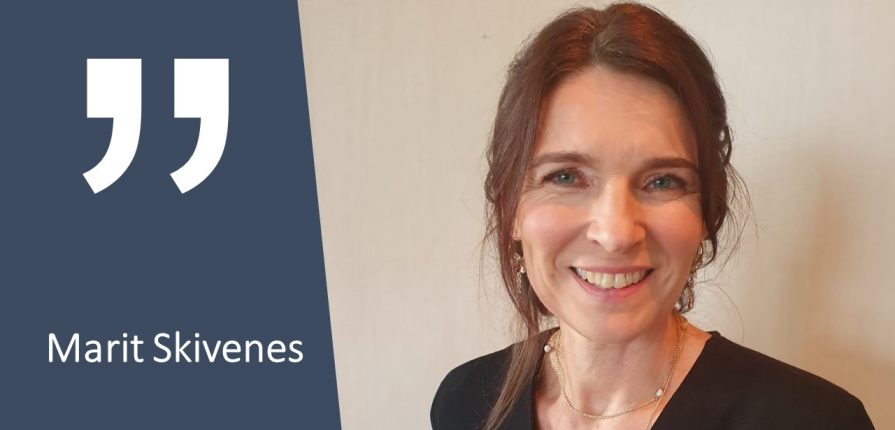BLOG: What do children say about adoption from care?
Research is often reporting on the lack of children´s agency and presence in their own child protection case. I have in several co-authored research pieces showed this[1]. However, we do also have some knowledge about what children say when they are involved and given the opportunity to voice their opinion in their own case.
This blogpost is devoted to the children that have made their opinion clear about adoption from care. An adoption means that the biological parents’ parental rights are terminated and transferred to the adoptive parents on a permanent basis. We know that adoption from care is an option that can be used in all European countries, but it is huge variation between countries in how often it is actually used.
In England, which have around 0.5% of the child population placed out of home, adoption from care is regularly used as a child protection measure. In all the Nordic countries, which have around 1% of the child population in out of home placements, adoption from care is only rarely used. The puzzle of why there are such differences in Europe, I will leave for another time.
Children´s opinion
What do the children themselves say about adoption from care versus foster home? In a research project studying all adoption cases decided by the County Social Welfare Boards in Norway over a six-year period (Helland & Skivenes 2019), we find that children´s opinion is evident in one third of the cases.
The analysis show that there is a strong correlation between age of the child and letting them have agency (McEwan-Strand & Skivenes, 2020). Most children over the age of seven years old had their opinion represented in the judgements. The testimonies from children themselves in these cases, give us an opportunity to learn a little bit about what children themselves experience and believe are important in their lives.
The children express that they want to be a real member of the family.
Of the total of 73 children who had their views presented, almost all of the children (n=70) expressed that they wished to be adopted. Two opinions were neutral, and one boy stated that he did not want reduced contact with his birth father, and if an adoption resulted in less contact he did not wish to be adopted.
Desire to belong
The children in the adoption cases express a clear desire to belong and to be a permanent part of the foster family – the family that they are living with on a daily basis and are forming an integral part of their childhood experiences. The children express that they want to be a real member of the family. An example of the County Board’s characteristics of an opinion of a 15-year-old girl illustrate this:
“She wants to be a full member of a family she is happy with, and who cares a lot for her. The security of living in a predictable home, and a future with the people she appreciates, weighs heavily.” (NA42) [2]
Another example is from a girl, age nine years, in which her opinion was described via her conversation with a spokesperson:
“The child calls her foster parents mum and dad. I tell her that if they become her adoptive parents, she will be their child forever. She says she is aware of this, and this is what she wants.”(NA75)
Children have also been concerned with their family situation for years, as the excerpt from a case about a boy, age 12 years, show:
“Boy (12) has expressed his views in the case, … He wants to be adopted, and his wish will be assigned considerable weight, … He has been preoccupied with his belonging to the foster home since he was 4–5 years old. There is no information about the boy’s functioning or maturity, nor in the case otherwise, that would indicate that he doesn’t understand what an adoption entails.” (NA44)
A requirement for legitimate decisions
Decision´s about children´s lives and future cannot be made without involving the most important person in the case – the child. It is a child that is living the life that is discussed and decided upon in County Boards, Courts and in the numerous child protection cases that now are being decided in the European Court of Human Rights.
It is without doubt that if a legitimate and qualified decision is to be made – a decision that aim to withstand scrutiny and rational critique – such a decision must be centered around the child´s perspective and must whenever possible include the child´s wishes and feelings.
Public and judicial decision makers have an obligation to make a decision that is in the child´s best interest. They are in child protection cases presented with a range of arguments and complex considerations, but this does not stand in the way for ensuring the child a central place in the case, as this case about a 15-year-old boy illuminate:
“The perhaps most important argument in favor of adoption, in this case, is still the boy’s clear and well-reflected wish to be adopted. He wants to be fully integrated into the family, take their name, and be like “other children.” (NA145)
References:
[1] See for example
- McEwan-Strand, A., & Skivenes, M. (2020). Children’s Capacities and Role in Matters of Great Significance for Them. The International Journal of Children’s Rights.,
- Berrick, Dickens, Pösö & Skivenes (2019). Children’s and parents’ involvement in care order proceedings: a cross-national comparison of judicial decision-makers’ views and experiences.Journal of Social Welfare and Family Law.
- Berrick, J. D., Dickens, J., Pösö, T. and Skivenes, M. (2015).Children’s involvement in care order decision-making: A cross-country analysis. International Journal of Child Abuse & Neglect, 9, pp. 128-141.
[2] All quotes are from written judgements made by the County Social Welfare Board. See also McEwan-Strand & Skivenes, 2020.


